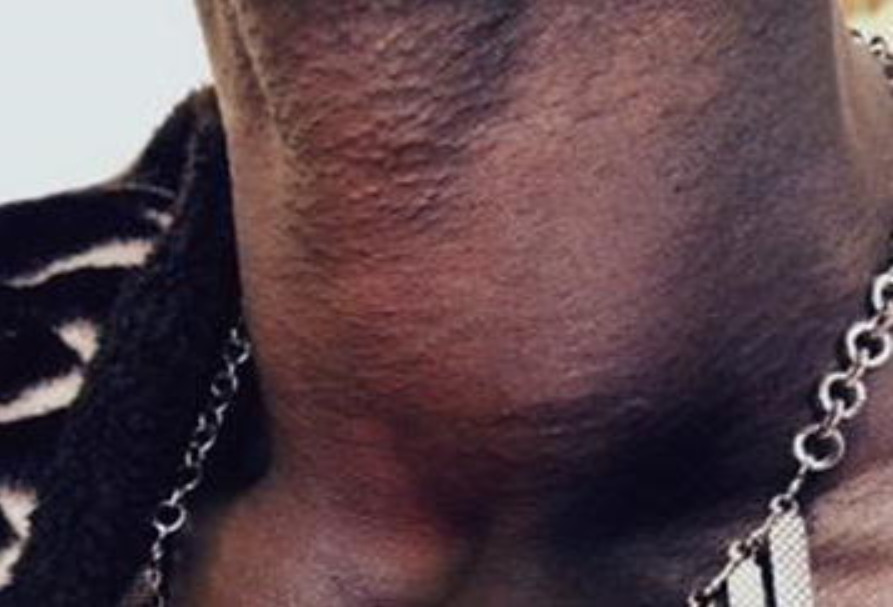Playlist
Show Playlist
Hide Playlist
Thyroid Nodules
-
Slides Thyroid Disease.pdf
-
Reference List Endocrinology.pdf
-
Reference List Thyroid Disorders.pdf
-
Download Lecture Overview
00:01 Thyroid nodules. 00:02 Most thyroid nodules are benign. 00:05 Order a neck ultrasound that include the evaluation of the thyroid and cervical lymph nodes when concerned about thyroid nodules. 00:13 On exam, assess the texture, mobility and for any associated lymphadenopathy. 00:19 The risk of malignancy on thyroid nodule is increased when a hard, fixed nodule is found adherent to the surrounding tissue and tends to be non mobile when swallowing. 00:30 Also, associated cervical lymphadenopathy is a concerning sign. 00:36 Thyroid nodules can be defined as benign or malignant. 00:40 Let go through some of the causes of benign thyroid nodules. 00:43 Hashimoto's thyroiditis or chronic lymphocytic thyroid nodules tend to be the most common. 00:48 But multinodular goiters or colloid adenomas will give you thyroid nodules, colloid cysts, cysts that have been blend into or hemorrhagic cysts, follicular adenomas and the very rare Hurthle cell adenoma are examples. 01:03 Malignant causes of thyroid nodules include papillary thyroid carcinoma which is the most common. 01:10 Followed by follicular thyroid carcinoma, medullary thyroid carcinoma and anaplastic thyroid cancer. 01:17 Primary lymphoma of the thyroid is very rare as all metastases but when these occur, usually suspect melanoma, renal, colon or breast as the primary source. 01:28 Increased risk of malignancy should be assessed when evaluating a patient with a thyroid nodule. 01:34 If the patient has had a prior history of radiation to the head and neck, there is an increased chance that the nodule may be malignant. 01:42 Also, if there is a family or personal history of thyroid cancer, if the patient is male versus female, if the patient is very young or very old, if the nodule has grown very rapidly and then finally, if the nodule is causing alterations in voice or hoarseness. 02:00 Let's go through a flow diagram that will help you evaluate the thyroid nodule. 02:05 As with everything in thyroid disease, you start with history and physical assessment and then go on to a thyroid stimulating hormone analysis. 02:14 If the TSH is high or normal, perform a thyroid ultrasound. 02:19 If a nodule found on ultrasound is greater than 1 centimeter, refer the patient for an ultrasound-guided fine needle aspiration to check the pathology of the underlying nodule and rule out malignancy. 02:33 If the thyroid nodule is less than 1 cm, repeat the ultrasound in 6 to 24 months and follow them clinically. 02:41 If on the other hand the TSH is low, do a thyroid scan and check your free T4 and free T3. 02:49 If the thyroid scan demonstrates a functioning or "hot" nodule, no FNA is generally required, just treat their underlying hyperthyroidism. 02:58 As mentioned, toxic or active thyroid nodules have a very, very low malignancy potential. 03:04 If on the other hand, the nodule is non functioning or cold or on the warmer side, evaluate these patients with an ultrasound guided FNA as the risk of malignancy is higher.
About the Lecture
The lecture Thyroid Nodules by Michael Lazarus, MD is from the course Thyroid Disorders. It contains the following chapters:
- Thyroid Nodules
- Increased Risk for Malignancy
- Evaluation of a Thyroid Nodule
Included Quiz Questions
Which of the following features of a nodule is most concerning for malignancy?
- Cervical lymphadenopathy
- Tender nodule
- Moves with swallowing
- Age 35–50 years
- Female sex
Which of the following nodules is being appropriately evaluated?
- Normal TSH | 0.6 cm nodule: repeat US in 12 months
- Normal TSH | 1.4 cm nodule: repeat US in 6 months
- Normal TSH | 0.7 cm nodule: schedule FNA
- Elevated TSH | 0.3 cm hot nodule: schedule FNA
Customer reviews
5,0 of 5 stars
| 5 Stars |
|
5 |
| 4 Stars |
|
0 |
| 3 Stars |
|
0 |
| 2 Stars |
|
0 |
| 1 Star |
|
0 |




